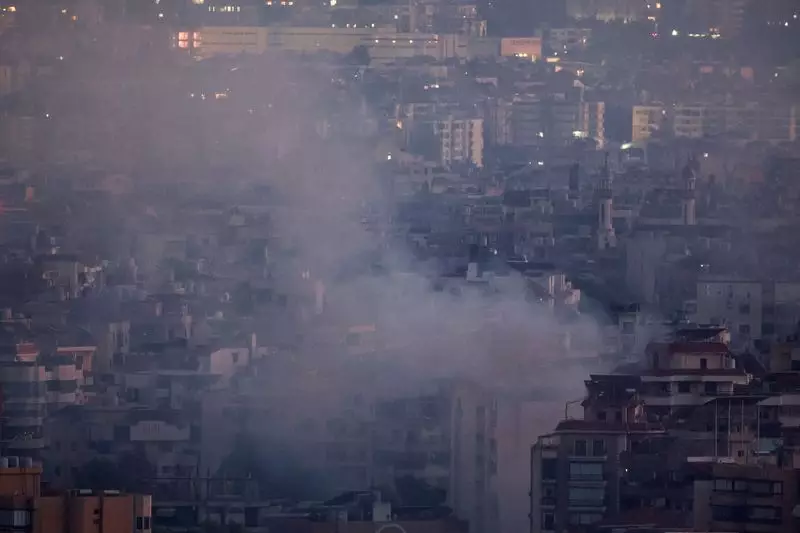The geopolitical landscape in the Middle East has entered a precarious stage as increased military actions signal a severe escalation in hostilities. The recent Israeli airstrike on Beirut, which resulted in the deaths of three leaders from the Popular Front for the Liberation of Palestine (PFLP), has raised alarms not only in Lebanon but across the region. This incident marks a notable shift—the first attack within the city limits of Beirut, hinting at Israel’s expanded military objectives that could potentially destabilize the entire region.
The PFLP’s announcement of the deaths occurred amidst a backdrop of intensified confrontations between Israeli forces and Iranian-backed groups, including Hezbollah in Lebanon and the Houthis in Yemen. Israel’s operations have been aggressive, as indicated by recent airstrikes across various locations, including the southern suburbs of Beirut and the port city of Hodeidah in Yemen. This escalation of military actions is accompanied by growing concerns regarding the broader implications for safety and stability in a region already fraught with conflict.
Witness accounts highlight the destructive impact of these strikes. Particularly striking was the attack on the Kola district of Beirut, which underscores the potential of urban areas becoming battlegrounds. With the death toll rising dramatically—reports indicating at least 105 fatalities in a single day—civilian casualties and displacements are surging. Over a million people have been reported as displaced, a staggering figure that reveals the comprehensive humanitarian crisis unfolding.
Beyond the numbers, the human stories behind these statistics are harrowing. Many families have been forced to seek refuge in unsuitable conditions, such as sleeping in public areas like Zaitunay Bay. Such crises exacerbate pre-existing vulnerabilities and create a backdrop of despair and instability within the Lebanese population. The Health Ministry has suggested a dire scenario, given that more than 1,000 Lebanese lives have been lost since hostilities surged in recent weeks, without a clear distinction between combatants and civilians.
The plight of vulnerable populations includes many Syrians who fled to Lebanon to escape their country’s ongoing war. Recent reports confirm that these displaced individuals are experiencing further hardships due to the renewed Israeli bombardment. With entire communities uprooted, the situation is not only a countdown to humanitarian disaster but also a breeding ground for further resentment and conflict.
The Role of Global Powers
The implications of this regional conflict extend beyond the immediate actors. The United States, while calling for de-escalation and a diplomatic resolution, has simultaneously authorized military reinforcements in the area. This dichotomy of promoting peace while enhancing military presence raises questions about commitment to genuine conflict resolution and the actual outcome of further military deployments. The involvement of global powers like the U.S. heightens the complexity of the situation, introducing the potential for broader confrontations.
As tensions rise, it is vital to revisit historical patterns of conflict in the region. Intense military reactions, often framed as necessary for national security, can lead to unintended consequences, including the radicalization of populations and the hardening of political positions.
The recent Israeli airstrike in Beirut reflects a worrying trend of escalating conflict that could have far-reaching implications. As cities become battlegrounds and civilian casualties mount, the prospect for peace appears increasingly remote. It is imperative that local leadership, international actors, and communities advocate for dialogue and humanitarian assistance to address the dire needs of those affected. The situation not only requires urgent attention but also a concerted effort to understand the deep-rooted issues driving this ongoing cycle of violence. As the world watches, the time for decisive action to prevent further deterioration is here, lest the region plunge deeper into chaos.

